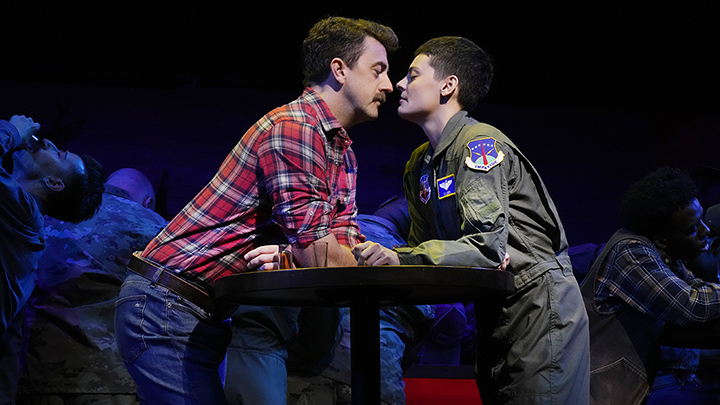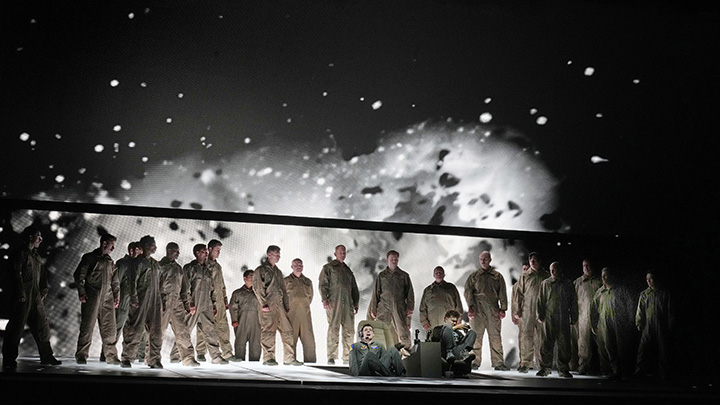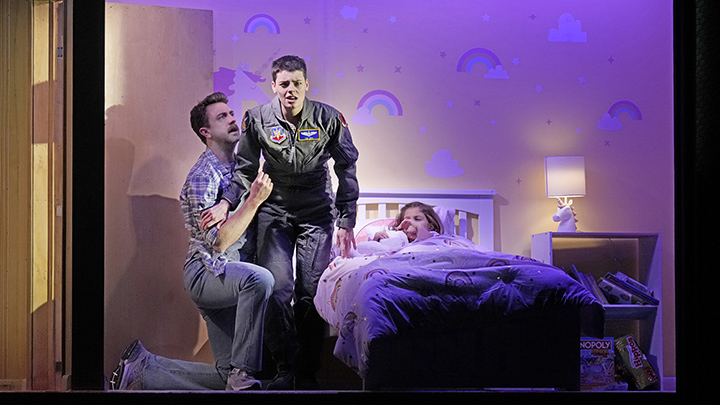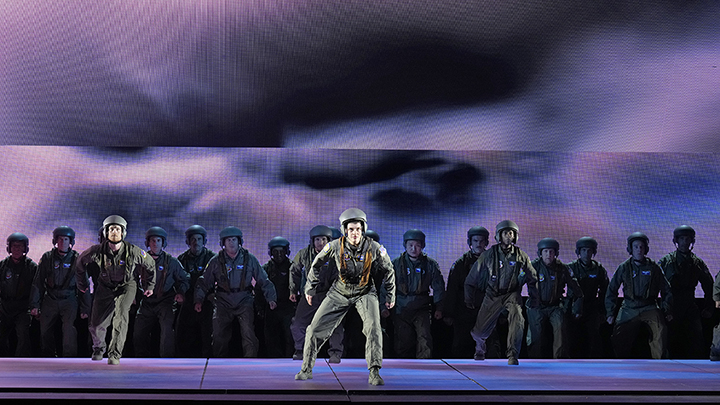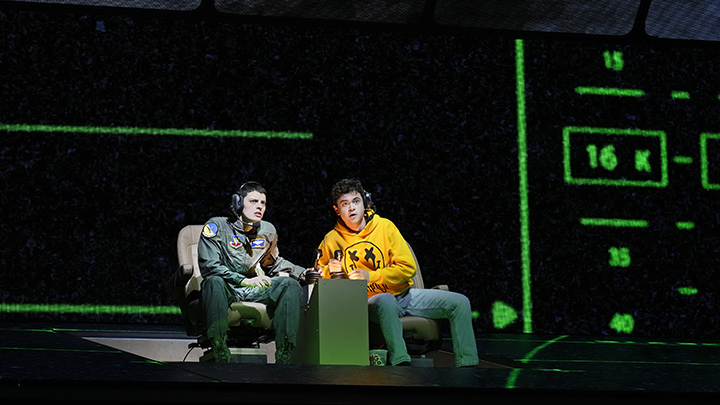Composed by Jeannine Tesori, with a libretto by George Brant based on his play, Grounded feels to me like the operatic equivalent of “this meeting could have been an email.”
Tesori – who has written five Broadway scores including Fun Home, Kimberly Akimbo, and even Shrek the Musical — is the first female composer to open a Met season.
And compositionally, Grounded is more than competent. A sweeping, cinematic, often sentimental score, injected with military drums and brass. I noted hints of Aaron Copland.
But why was it not, simply, a musical? Or a play with music? Even a film? Any of these options would have been stronger.
The synopsis doesn’t exactly scream opera: A female fighter pilot, Jess, meets a guy, Eric, who gets her pregnant. Rejoining the Airforce, now with a five-year-old daughter, she is assigned to remote-operate a reaper drone. In this bizarre work-from-home setup, she loses touch with reality.
But maybe there’s some logic to the adaption. After all, there are countless wartime operas. (Sergei Prokofiev’s War and Peace, Alban Berg’s Wozzeck, Kevin Puts’s Silent Night). And Grounded’s second act is essentially an extended “mad scene.”
The fact that Grounded takes place during the Iraq war made me wonder: How soon is too soon? Though the opera might open up important conversations (by the end, Jess feels remorse for lives cut short) certain choruses, like “Boom goes Bagdad,” felt insensitive.
Grounded was originally a one-woman play, which explains the two-dimensionality of its supporting characters. The 30-year-old mezzo-soprano Emily D’Angelo originates the role of Jess. Her voice is as striking as her tightly cropped hair.
The husband, Eric, sung by tenor Ben Bliss, is a caricature. We learn nothing about him. At one point, Jess sings that their relationship is like “like some cheesy ’50s movie.” Indeed, if the gender roles were reversed, it would be offensive.
But Bliss’s voice is worthy of his name. In duet with D’Angelo, he sings, “I didn’t see what was coming…,” then, sweetly, in his head voice, “…you!” Even his character’s Western accent was less annoying than expected.
The costumes, by Tom Broecker, reminded me of a JC Penney catalogue. The mustachioed Eric in a cowboy hat, red flannel, and Trucker jacket. Jess, when not in her flight suit, wearing an unflattering long sleeve and mom jeans.
I’ll admit that English is an unkind language for opera. And maybe I heard “My suit, my passport to the sky” a few too many times as a targeted Instagram ad. Not to mention the strangely homoerotic “My gal who cradles me, lifts me up,” referring to Jess’s plane.
But I couldn’t get behind Brant’s libretto. Especially, the way he uses swears to diffuse tension: “Damn straight,” “God dammit,” “what the fuck,” “fuck.” I’m all for the vernacular. But this was too much.
The color symbolism was a bit too on-the-nose. “I am the blue,” sings Jess. Following a bout of morning sickness, she sings “I’m pink!” holding up a pregnancy test. Grey mushroom clouds. Blinding white light.
But there were some funny moments: “If I notice the scenery, you’re doing something wrong,” sings Jess under a neon Coors Light sign. After their hookup: “Last night I saw all the parts of Wyoming that I needed to see.” This is followed by a schmaltzy cello solo.
Opening act two, in a Los Vegas mall, the chorus sings “The smell of Cinnabon!” A bold choice.
The saving grace of Grounded was the set, designed by Mimi Lien. The raked stage, full of precarity, represented all at once the roof of a house, the earth and sky, the domain of the mind.
Jess’s dissociated double, sung by soprano Ellie Dehn, made sense both dramatically and musically. (In contrast to, for example, unnecessary doubling in Matthew Aucoin’s Eurydice.) The friction between their stacked tessituras sounding like a plane taking off.
Maybe the biggest issue, though, is that the climax of the opera. It takes place with Jess in a command chair, facing the audience. The “kill chain” is over her headset. The baritone Kyle Miller, as “Sensor,” beside her, sipping a Baja blast.
The music turns Philip Glass-like, with churning strings and wind arpeggios. But we don’t see what Jess sees. Instead of “show don’t tell,” this is “tell don’t show.”
Grounded fizzles out from there. Jess ends up in a concrete military prison: “I am here, grounded,” she sings. Talk about a title drop.
Photos: Ken Howard

